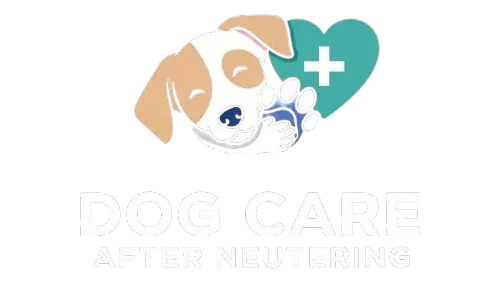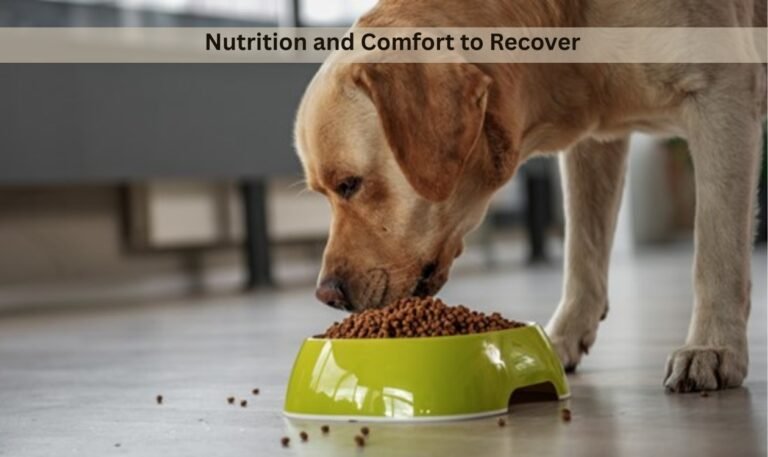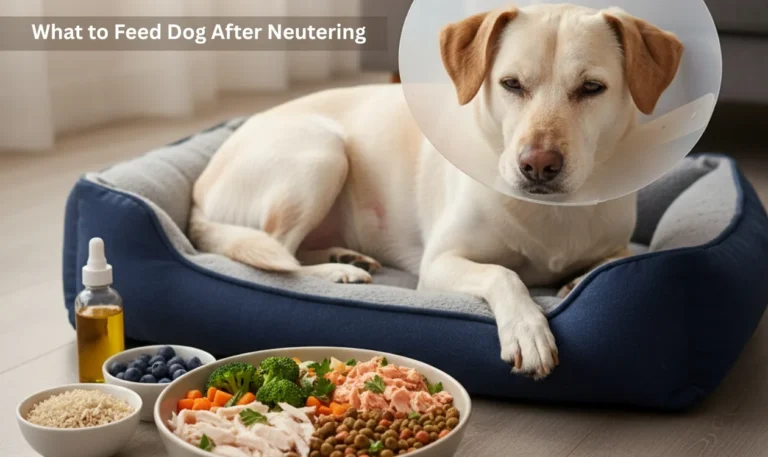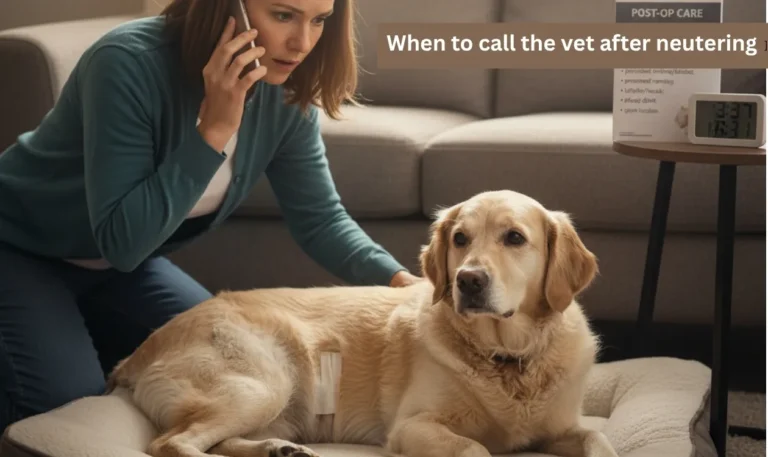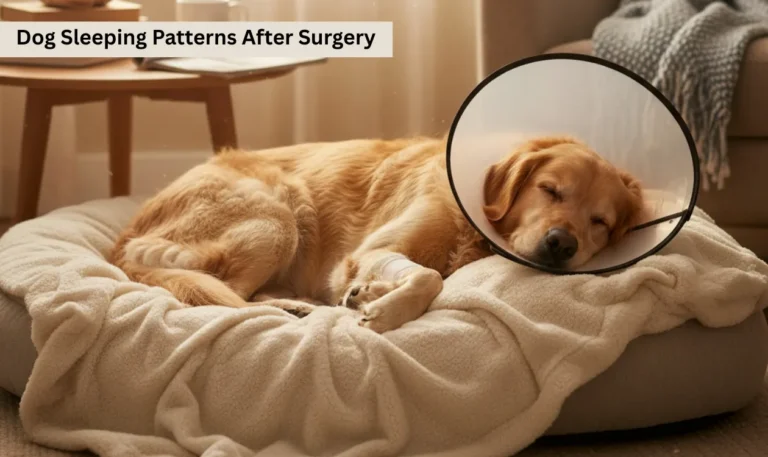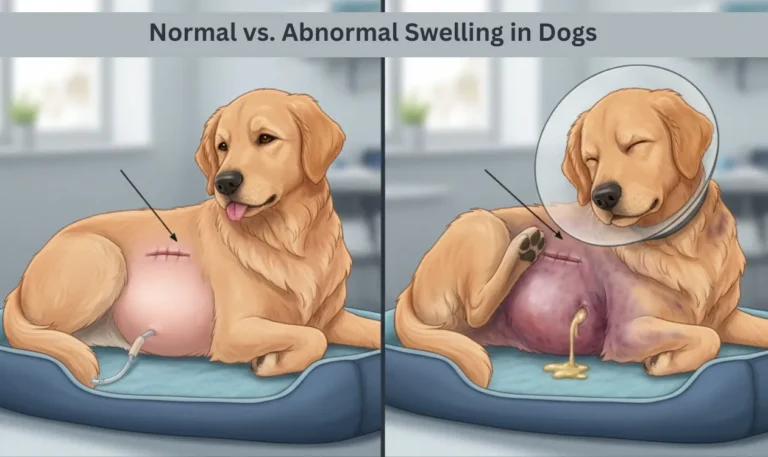Loss of Dog Appetite Post Surgery: Causes, Care and Feeding Advice
Learn why loss dog appetite post surgery occurs and how to restore healthy eating with gentle care, monitoring, hydration, and when to seek veterinary help.
Dogs usually lose their appetite after surgery because of anaesthesia, stress and pain. Their digestive system has the possibility of slowing down and they may feel nauseated or fatigued. This decreased appetite is a matter of concern to the owners of the pets, yet it is usually a normal process of healing.
Knowing the reason why your dog is not eating is better to make you react. You can schedule nonaggressive feeding plans by taking into consideration the fact that their body requires time to adapt. By keeping an eye on the food intake, hydration, as well as the level of energy, you will keep your pet comfortable during the dog healing process.
Common Reasons for Appetite Loss in Dogs Post-Surgery
Anaesthesia has the potential to affect the stomach of your dog and may cause nausea for up to 24 hours. Their interest in food can also decrease due to surgical pain, antibiotics, or other medications. Emotional stress from being away from home may also contribute to appetite loss. In some cases, reduced appetite can be linked to anorexia a condition in which animals lose the desire to eat
Of some dogs, there is a possibility of avoiding eating due to sore throats that occur as a result of breathing tubes during surgery. Some other people may be too weak, and they do not need to eat like the rest of us. You should be aware of these reasons so that you can be patient and provide a serene feeding arrangement.
How Long Does Appetite Loss Last After Surgery?
The dogs resume their appetite in 24-72 hours of surgery. Nonetheless, each dog is unique and the time of recovery will be based on the kind of surgery, anesthesia and general health. It is common and should not be a big issue that mild disinterest in food occurs on a day or two.
In the case when your dog does not want to eat during the period of more than three days, or if he begins to vomit or looks exhausted, call your veterinarian. Persistent loss of appetites may signal infection, pain or may be an effect of a reaction to medicine and may require attention.
Best Foods to Offer When Your Dog Won’t Eat
Soft and bland foods are the good ones when it comes to loss of dog appetite following surgery. Alternatives such as boiled chicken, white rice or plain pumpkin are not harsh on the stomach. These assist to give energy and nutrition but do not disturb digestion.
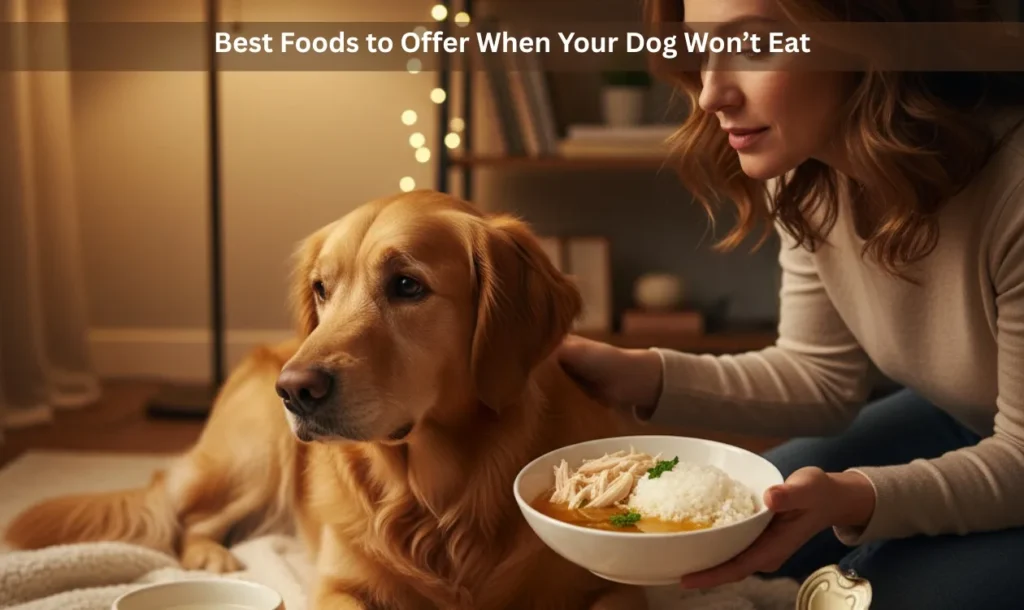
There is also the option of trying canned dog food that is low in fat or special veterinary-prescribed formulas. Serving the food slightly warm improves the smell and increases its appeal. It is advisable to avoid spicy, oily, or salty foods during this recovery period. Some dogs may also benefit from easily digestible diets to prevent malabsorption a condition where the body cannot properly absorb nutrients
Encouraging Your Dog to Eat After Surgery.
Feed your dog in small amounts several times a day to get him to eat. They can be made to feel loved and comfortable by feeding them by hand or through the use of a spoon. Eat together with them to give them emotional support.
You may also include warm broth or some wet food in their normal ration to add temptation to it. The food should always be soft and easy to chew and this is particularly in cases where your dog has undergone oral or abdominal surgery. Light persuasion goes a long way in reviving appetite.
Importance of Hydration During Recovery
As important as food in the post-surgery recovery of your dog is hydration. Water shortage may result in dehydration and therefore slow healing and exhaustion. Ensure that your dog has clean water, and that this water is fresh.
In the event that they do not wish to drink, then you should give them ice cubes or add low sodium chicken broth to water. Wet dog food also has the advantage of keeping the levels of hydration. The correct fluid intake is what helps the kidneys to work properly and maintain the energy level during the recovery.
Supplements and Appetite Boosters for Dogs
In other cases, dogs require further assistance to regain their appetite. Your veterinarian can prescribe appetite stimulants or nutritional supplements. These products are rich in vitamins, minerals, and essential fatty acids that support overall well-being. Some supplements fall under nutraceuticals nutrition-based products that provide health benefits beyond basic nutrition
Digestion and immune functions can also be increased with the help of natural products such as fish oil or probiotics. Never however administer human supplements or even over the counter stimulants without the recommendations of your vet as they can have detrimental health effects on your dog.
When to Contact the Veterinarian
When your dog does not eat within the next 48-72 hours, then it is time to call your veterinarian. Continuous loss of appetite can be an indicator of infection, internal pain or post-surgical complications. Early treatment and prevention of serious problems are guaranteed by quick action.
Symptoms to look out for include vomiting, fever, swelling along the incision, or excessive lethargy. Your vet may recommend blood analysis or a change in medications to restore a healthy and safe appetite. There is no reason not to follow professional advice during recovery. Proper handling, including safe dog carry techniques, also helps prevent strain on the incision and supports healing.
Tips for Feeding Dogs with Low Appetite
Make the lunchtime peaceful and relaxing. Your dog should not be subjected to loud noises or abrupt motions which could cause him to get nervous. Eat in their preferred bowl and have a regular schedule of feeding.
Provide some variety in texture—a combination of soft, wet, and slightly warm food can attract picky eaters. Use gentle words and affection when encouraging your dog to take small bites. Consistency and patience make the process much easier. Offering different textures can also help stimulate palatability the measure of how appealing and acceptable food is to an animal.
Transitioning Back to Regular Diet
When your dog begins eating properly again, you should slowly transition them back to their normal food. Add a small amount of their regular diet to the recovery meals over a few days to prevent digestive upsets. Gradually increase the normal food until the transition is complete. This slow shift helps prevent dyspepsia a digestive disturbance that can cause discomfort.
Keep track of their bowel, vitality and hunger at this stage. Assuming that everything is alright then proceed with the normal feeding plan. A slow method will make it more comfortable and will prevent gastrointestinal discomfort.
FAQs: Loss of Dog Appetite Post Surgery
Final Thoughts
In most cases, loss of dog appetite during and post surgery is short term. Patience, care and appropriate feeding methods will see your furry friend back on its feet soon and eating once more. Make food light, healthy and attractive in the recovery phase.
Have a large amount of water and monitor hydration and general behavior, keep in touch with your vet. The greatest prescription is proper nutrition, love and attention so that your dog can get better and remain healthy.
